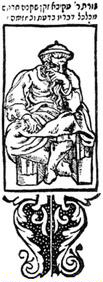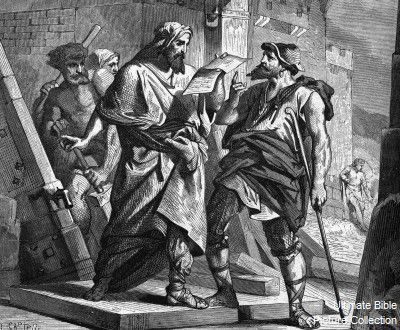Was it possible for Second Temple Jews to have imagined a Messiah who is unjustly killed solely by reading their Scriptures?
The Apostles in Acts are said to have preached Christ out of the Scriptures. Paul, and even other epistle writers, claim that their gospel was revealed to them through the scriptures and/or through the spirit of God — not oral tradition or personal encounters.
Now to him who is able to establish you by my gospel and the proclamation of Jesus Christ, according to the revelation of the mystery hidden for long ages past, 26but now revealed and made known through the prophetic writings by the command of the eternal God, so that all nations might believe and obey him . . . (Romans 16:25-26)
the mystery that has been kept hidden for ages and generations, but is now disclosed to the saints. (Colossians 1:26)
My purpose is that they may be encouraged in heart and united in love, so that they may have the full riches of complete understanding, in order that they may know the mystery of God, namely, Christ (Colossians 2:2)
the mystery of Christ, 5which was not made known to men in other generations as it has now been revealed by the Spirit to God’s holy apostles and prophets. (Ephesians 3:5)
and at his appointed season he brought his word to light through the preaching entrusted to me by the command of God our Savior, (Titus 1:3)
Although one often hears it said that no first-century Jews were expecting a humiliated and crucified Messiah, the evidence one can read in the Jewish Scriptures surely suggests otherwise. Given the diversity of religious ideas we are led to understand blanketed the Second Temple era, and given the nature of the few scriptural passages that specifically and literally refer to “anointing” or “anointed” (=messiah), we would be very courageous to bet that no sects had such an idea.
Look at Psalm 2.2 for starters
The kings of the earth set themselves,
And the rulers take counsel together,
Against the LORD and against His Anointed [=Messiah]
Now the rest of the Psalm goes on to recount God laughing at those plotting rulers and assuring his Messianic Son (whom he has begotten that day) that he will give him victory over his enemies.
Nonetheless, we do have passage that presents a clear threat to the Messiah, and one from kings and rulers.
It is surely not too much of a leap for any reader familiar with these scriptures, and the Psalms in particular, to let their mind wander to other psalms where David or God’s son is promised deliverance and exaltation over his enemies, but only after first being brought face to face with death itself. One finds similar motifs within Isaiah, where the servant of God (Israel – Isa.49.3, who is also God’s son – Exod.4.22 and Hos 11.1) is humiliated, despised, struck down, only to rise again in victory over his foes – Isa. 49 ff.
In Isaiah 11 we even read that such a son is, at least figuratively, a son of David. And in Isaiah 53 we find the same word to describe the “delivering up” of the Servant to humiliation as we find in Paul’s 1 Corinthians 11:23 statement that Christ was “delivered up” on the night of the Last Supper (Doherty, p. 86).
But it wasn’t all suffering and exaltation for the Messiah. Isaiah 61.1 informs readers that the one anointed (a messiah) is to preach the good news.
The Spirit of the Lord GOD is upon Me,
Because the LORD has anointed Me
To preach good tidings to the poor;
He has sent Me to heal the brokenhearted,
To proclaim liberty to the captives,
And the opening of the prison to those who are bound
And this Isaiah passage cannot help but lead readers of this book to companion passages where one reads of the lame being healed, the blind being restored to sight, such as Isaiah 35
Then the eyes of the blind shall be opened,
And the ears of the deaf shall be unstopped.
Then the lame shall leap like a deer,
And the tongue of the dumb sing.
And so the messiah will perform such miracles?
If we look at the career of kings who are said to have been “anointed” (messiahs) we find a similar mixed pattern.
Hazael (anointed 1 Ki 19.15) and Jehu (anointed 2 Ki 9.1-6) brought conquest and judgment upon those whom God sought to punish.
Saul (anointed 1 Sa. 9.10) also delivered Israel from her enemies for a time, but then was himself slain for his sin.
Joash of Judah (anointed 2 Ki. 1.32-45) likewise was chosen by God to save the Davidic line, but was also murdered for his subsequent sin against God’s prophet, Zechariah.
And we know the stories of David (anointed 1 Sa. 16.1, 13) and Solomon (anointed 1 Ki. 1.32-45) well enough. Both chosen by God, but both failed their God and suffered in different ways. David, in particular, had to flee from his kingdom, climbing the Mount of Olives in his own desperate straits and trusting in God for deliverance.
But these are all past human kings. If I were looking for a Messiah in the Scriptures who would be the Messiah of all Messiahs and bring in the age of God, would I not be guided by each of these, but also be open to something even greater than all that had preceded? If past messiahs broke physical kingdoms and ruled geographical areas for limited times, would not we want the final messiah to go one better and smash the powers that ruled all those kingdoms, and to take charge of them? I know, I’m jumping way ahead of the story, here.
This is only a mind game, and we might think it’s too easy in retrospect to imagine how anyone might interpret the passages back then. But that’s why I am taking as my starting point only those passages that specifically mention the word for Messiah — the exact word that might trigger the imagination of an ancient Jew.
But how might at least some Jews have interpreted the following from Daniel? Are any at all likely to have played with its ambiguity? Continue reading “Jewish scriptures as inspiration for a Slain Messiah”
Like this:
Like Loading...
But it’s not that Earl advocates lunacy in a manner devoid of learning. He advocates a position that is well argued based on the evidence and even shows substantial knowledge of Greek. But it cannot be true, you say. Why not? Because it simply can’t be and we shouldn’t listen to what can’t be true. No. Not so quick.




 Philo was a Jewish philosopher in Egypt who died around 50 ce. Much of his literary work was an attempt to explain Jewish beliefs in the language of Greek (or Hellenistic) philosophers.
Philo was a Jewish philosopher in Egypt who died around 50 ce. Much of his literary work was an attempt to explain Jewish beliefs in the language of Greek (or Hellenistic) philosophers.


 No sooner do we read of
No sooner do we read of 


